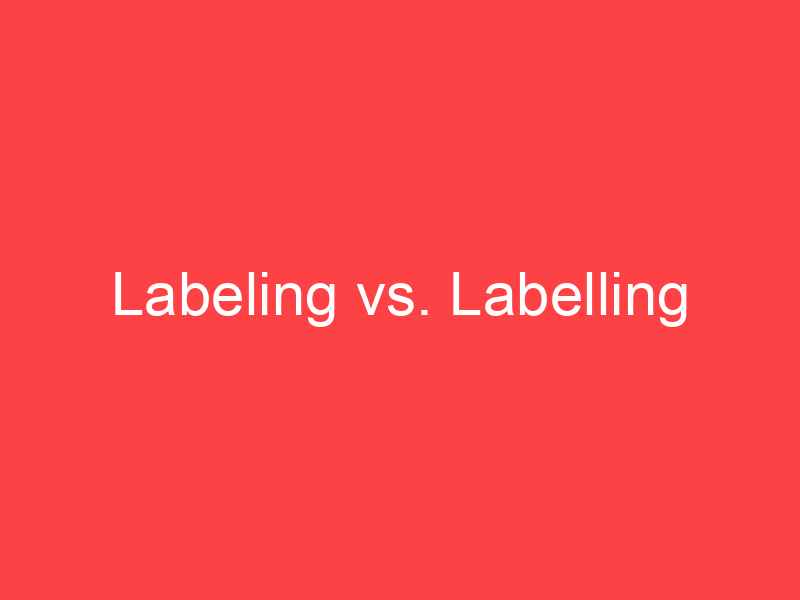-
Labelling
Labelling or labeling is describing someone or something in a word or short phrase. For example, describing someone who has broken a law as a criminal. Labelling theory is a theory in sociology which ascribes labelling of people to control and identification of deviant behaviour.
It has been argued that labelling is necessary for communication. However, the use of the term is often intended to highlight the fact that the label is a description applied from the outside, rather than something intrinsic to the labelled thing. This can be done for several reasons:
To provoke a discussion about what the best description is
To reject a particular label
To reject the whole idea that the labelled thing can be described in a short phrase.This last usage can be seen as an accusation that such a short description is overly-reductive.
Giving something a label can be seen as positive, but the term label is not usually used in this case. For example, giving a name to a common identity is seen as essential in identity politics.
Labelling is often equivalent to pigeonholing or the use of stereotypes and can suffer from the same problems as these activities.
The labelling of people can be related to a reference group. For example, the labels black and white are related to black people and white people; the labels young and old are related to young people and old people.
The labelling of works of art can be related to genre. For example, a piece of music may be described as progressive rock or indie or ragga jungle drum and bass. However, there are other labels that can be applied to a work, such as derivative, low or high. The use of the word labelling is less common in the context of works of art than people. However, it also often represents the rejection of a label. For example, an artist may feel that the labeller is attempting to restrict the scope of the artist’s work to that which is covered by the label.
-
Labeling (noun)
A set of labels applied to the various objects in a system.
-
Labeling (noun)
The introduction of a traceable chemical group (e.g., containing an isotope or a fluorescent dye) into a protein or other biomolecule of interest so it can be tracked or quantified during experimental analysis.
-
Labeling (verb)
present participle of label
-
Labelling (verb)
present participle of label.
-
Labelling (noun)
alternative form of labeling

